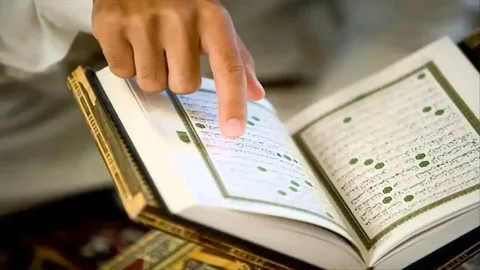Education holds a special place in Islam, as it is considered a fundamental pillar for personal growth and societal advancement. The Quran, the holy book of Islam, places tremendous emphasis on the acquisition of knowledge, urging believers to seek understanding in all aspects of life. But what does the Quran say about education specifically? Let’s dive into the teachings of the Quran and how they shape the Islamic approach to learning.
what does the quran say about education

In Islam, knowledge is seen as a light that guides individuals toward truth and wisdom. It’s not limited to religious teachings but encompasses all forms of beneficial knowledge, including the sciences, humanities, and practical skills.
The Quran’s Approach to Seeking Knowledge
The Quran encourages Muslims to seek knowledge from the cradle to the grave. It constantly prompts believers to reflect on the universe, life, and the divine signs within nature. This continuous pursuit of knowledge is seen as a form of worship.
Emphasis on Reflection and Understanding
Verses throughout the Quran stress the importance of reflection, understanding, and deep thinking. Muslims are encouraged not only to learn but also to reflect on what they have learned to gain a deeper understanding of the world and their purpose within it.
Read more: what does the quran say about other religions
Importance of Education in Islam
One of the strongest messages of the Quran is that seeking knowledge is a religious duty. The Prophet Muhammad (PBUH) said, “Seeking knowledge is an obligation upon every Muslim.” This means that education is not just a right but a requirement for every Muslim, regardless of gender or social status.
Education for Men and Women
The Quran makes no distinction between men and women when it comes to education. Both are encouraged to seek knowledge. Women, in particular, have been given high regard in terms of their role in learning and teaching within the family and the community.
Knowledge as the Path to Spiritual Growth
In Islam, education is seen as a tool for spiritual growth. The more a person learns about the world and its workings, the more they appreciate the wisdom of Allah and His creation. This understanding strengthens one’s faith and brings them closer to the Creator.
Read about: what do the symbols in quran mean
Key Quranic Verses That Highlight Education

The Quran emphasizes the importance of knowledge, learning, and education in various verses. Here are some key Quranic verses that highlight the significance of education:
Surah Al-Alaq (96:1-5) – The First Revelation
The very first revelation to Prophet Muhammad (PBUH) was a command to “Read!” (Iqra). This highlights the importance of reading, learning, and acquiring knowledge. The full verse says, “Read in the name of your Lord who created.” This verse signifies that education is intertwined with understanding the divine creation.
Surah Taha (20:114) – Prayer for Knowledge
In this verse, the Quran teaches believers to pray for increased knowledge: “My Lord, increase me in knowledge.” This demonstrates that Muslims should constantly seek to expand their understanding.
Surah Al-Zumar (39:9) – The Superiority of the Knowledgeable
This verse asks, “Are those who know equal to those who do not know?” It highlights the elevated status of those who possess knowledge in the eyes of Allah.
The Role of Education in Building Society
The Quran promotes education as a tool for achieving social justice and equality. Knowledge empowers individuals to fight against oppression and stand for truth, fairness, and justice in society.
Quranic Guidance on Practical and Ethical Education
The Quran encourages not only theoretical learning but also practical and ethical education. It teaches Muslims to apply their knowledge to improve the world around them while adhering to strong moral and ethical principles.
Education Beyond Religious Knowledge
Islamic history is filled with examples of Muslims excelling in science, medicine, mathematics, and more. The Quran itself encourages believers to explore the world around them, to study the heavens and the earth, and to appreciate the marvels of creation.
Role of Intellectual Pursuits in Society
The Quran promotes intellectual pursuits as a means to benefit society. Whether it’s through technology, medicine, or literature, Muslims are encouraged to use their knowledge to contribute positively to the world.
Education and Wisdom in the Quran
While knowledge refers to the accumulation of facts, wisdom is the proper application of that knowledge. The Quran places significant value on wisdom, urging believers to be thoughtful and discerning in how they use what they have learned.
How the Quran Encourages Critical Thinking
The Quran does not shy away from encouraging critical thinking. It constantly asks believers to question, reflect, and ponder the signs of Allah, fostering a mindset of inquiry and deep contemplation.
The Prophet Muhammad’s Teachings on Education
Prophet Muhammad (PBUH) emphasized the importance of knowledge in numerous Hadiths. He said, “The best of you are those who learn the Quran and teach it to others.”
Importance of Teaching Others
Not only is acquiring knowledge important, but sharing it with others is equally emphasized. Muslims are encouraged to spread beneficial knowledge, as teaching is seen as a way to multiply good deeds.
Women’s Education in Islam According to the Quran
The Quran advocates for the education of women, making no distinction between men and women when it comes to learning. Women are considered equal partners in the quest for knowledge.
Quranic Verses on Gender Equality in Learning
Many Quranic verses support the idea of gender equality in education, highlighting that both men and women are responsible for learning and contributing to the well-being of society.
Modern Interpretations of Education in the Quran
Today, many Islamic scholars emphasize the importance of a well-rounded education, blending religious teachings with modern sciences to create a balanced individual who can contribute to both their faith and society.
The Role of Education in the Modern Muslim World
In the modern Muslim world, education is seen as the key to progress and development. Many Muslim countries are working to improve access to education and to integrate Quranic values with contemporary learning systems.
Islamic Education Systems
The traditional madrasa system focuses on religious education, teaching students the Quran, Hadith, and Islamic jurisprudence. This system has played a crucial role in preserving Islamic knowledge throughout history.
Modern Islamic Schools and Universities
Today, many Islamic schools and universities incorporate both religious and secular subjects, providing students with a comprehensive education that prepares them for modern challenges while grounding them in their faith.
The Future of Education in the Muslim World
One of the major challenges is the gap between religious and secular education. Many scholars argue for a more integrated approach that values both, preparing students for the complexities of the modern world.
Opportunities for Growth and Innovation
Despite the challenges, there are significant opportunities for innovation in Islamic education, particularly in areas like technology and online learning. These tools can help bridge the gap and make education more accessible to Muslims around the world.
FAQs
Is seeking knowledge a religious obligation in Islam?
Yes, seeking knowledge is considered a religious duty for every Muslim, as emphasized in the Quran and Hadith.
Does the Quran encourage education for women?
Absolutely! The Quran promotes education for both men and women, advocating for equal opportunities to learn.
What are some Quranic verses that highlight the importance of education?
Verses like Surah Al-Alaq (96:1-5), Surah Taha (20:114), and Surah Al-Zumar (39:9) highlight the significance of knowledge and education in Islam.
How does the Quran view scientific knowledge?
The Quran encourages the pursuit of all beneficial knowledge, including scientific knowledge, as a way to understand the creation of Allah better.
What is the role of education in the modern Muslim world?
Education is seen as a vital tool for progress and development in the modern Muslim world, with a focus on integrating religious and secular knowledge.
Conclusion
The Quran places immense value on education, seeing it as the key to personal development, spiritual growth, and societal advancement. By seeking knowledge, reflecting on what they have learned, and using it wisely, Muslims can fulfill their religious duties and contribute to the well-being of the world.


